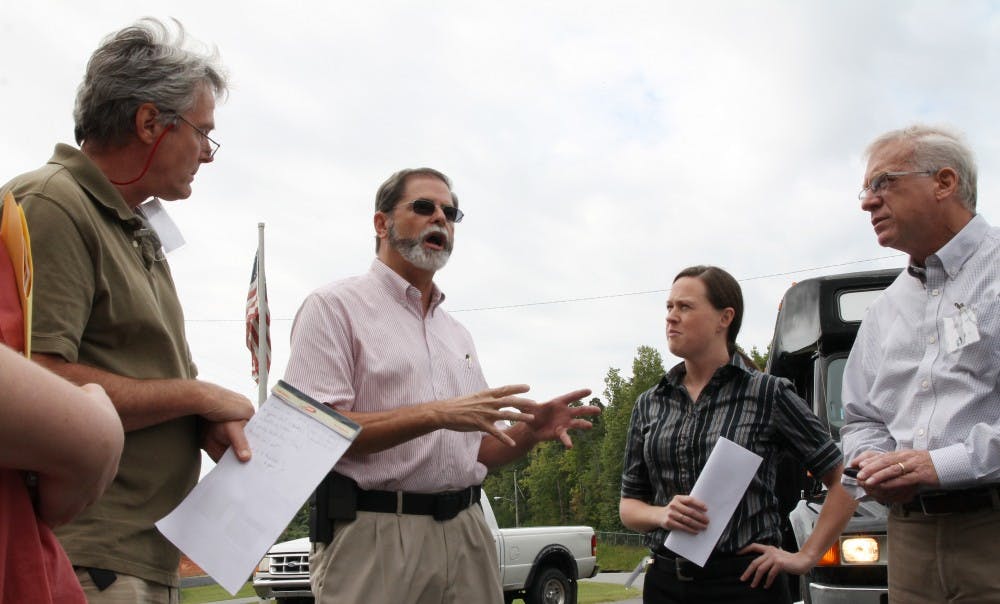Located about a mile from the center of town, the Asheboro transfer station isn’t much more than an 80 feet by 80 feet aluminium building and a few trash trucks.
Wendy Simmons, solid waste services superintendent for Chapel Hill, said the town chose to tour the Asheboro facility because of its comparable size.
Asheboro and Chapel Hill both produce about 14,500 tons of solid waste each year.
“This is about the size of the facility we’ve imagined,” Simmons said.
The station — usually staffed by one employee — receives anywhere from 10 to 20 shipments of waste daily.
“We do most of the work ourselves,” said Kermit Williamson, environmental services superintendent for Asheboro.
Each shipment is dumped into the building, then immediately consolidated into 20- to 25-ton transfer trailer trucks and taken to a landfill in Montgomery County.
“We try to keep it empty,” said Williamson. “We try to keep it clean and simple.”
Exploring options
Council members were initially surprised by the waste transfer site’s size.
“Clearly its a much smaller foot print than I though it would be,” Chapel Hill Mayor Mark Kleinschmidt said. “Our landfill and waste facilities now are enormous.”
But there are still many decisions to make before the town can proceed.
To get the day's news and headlines in your inbox each morning, sign up for our email newsletters.
Simmons said they have selected a parcel of land near the current landfill as a possible location for a waste transfer station site.
Kleinschmidt said Chapel Hill would like to include Carrboro and Orange County in waste disposal discussions.
Town Councilman Jim Ward said he would like to see recycling included in waste disposal, and Rich said she would like to see the town explore options that would make use of trash as fuel.
“Ideally, if you do build a transfer station, you want to turn it into something in the long-term,” Rich said.
Meanwhile, the county plans to begin shipping its waste to the Durham County waste transfer station after the landfill closes — a procedure that officials say will be costly.
“We want to decrease the amount of time as much as possible that we’re doing that,” Kleinschmidt said.
Helping Rogers Road
The landfill’s impending closure has sparked a heated — and sometimes vicious — debate among county and town officials about the cost of providing remediations for the Rogers Road community.
On Tuesday, the Carrboro Board of Aldermen pledged $900,000 to remediations.
“We have been 14 percent of the problem, and it just seems that we should pay 14 percent of the share,” said Carrboro Mayor Mark Chilton.
Residents of the traditionally black and low-income neighborhood have complained of an odor, water contamination and litter as a result of the landfill’s proximity.
In August, the neighborhood’s community center was shut down for violating fire and safety codes.
The remediations will help fund a new community center and access to sewer service for the neighborhood.
On Monday, the town council will discuss the Historic Rogers Road Neighborhood Task Force interim report — which outlines cost-sharing options for remediations.
“It’s more important to move forward than point fingers,” Chilton said.
Contact the desk editor at city@dailytarheel.com.




